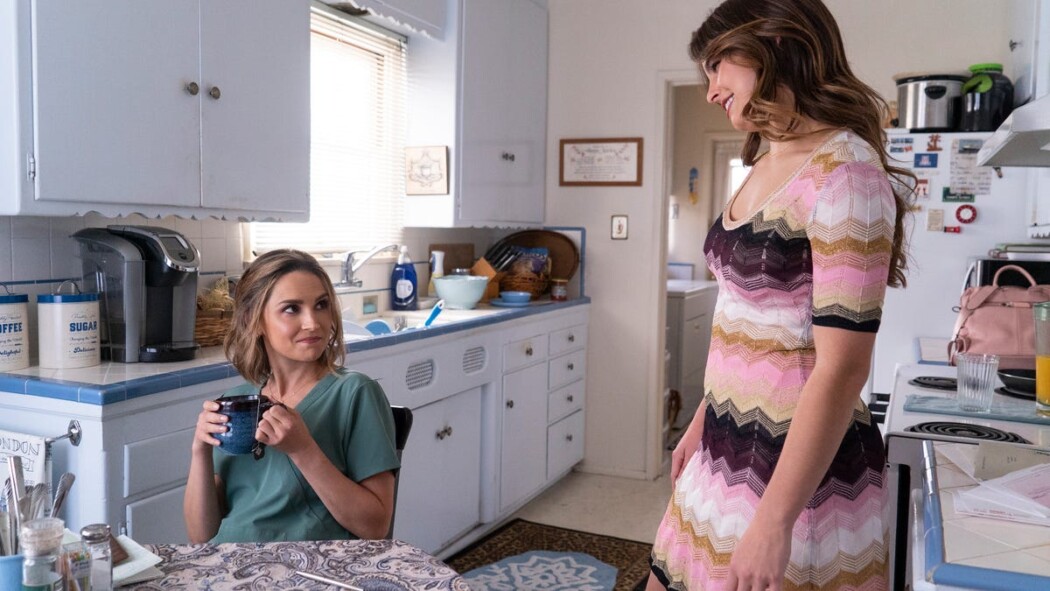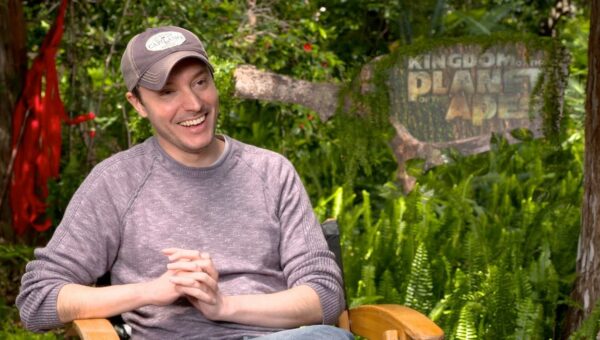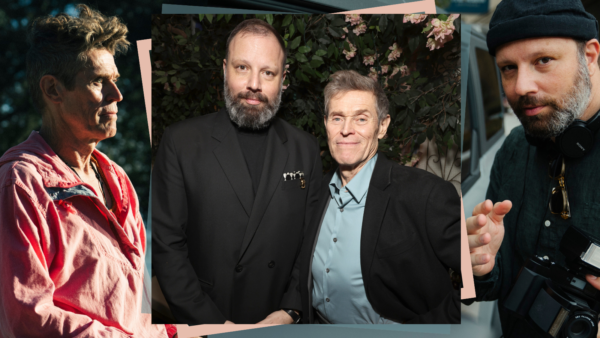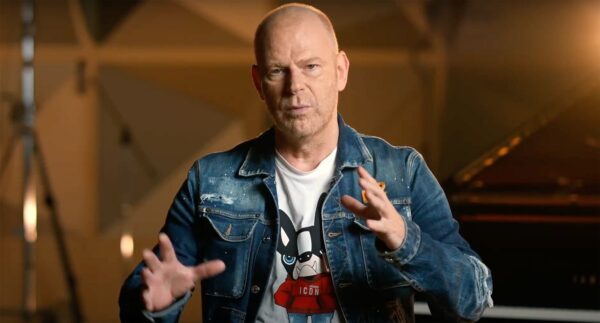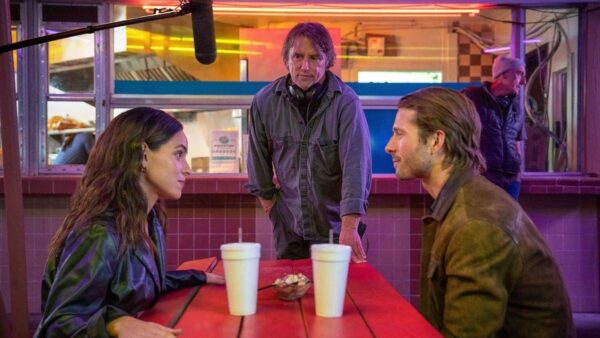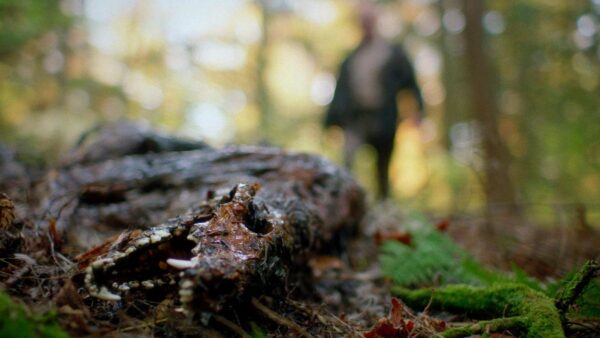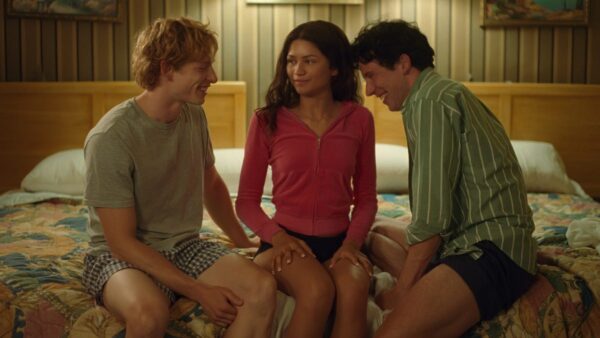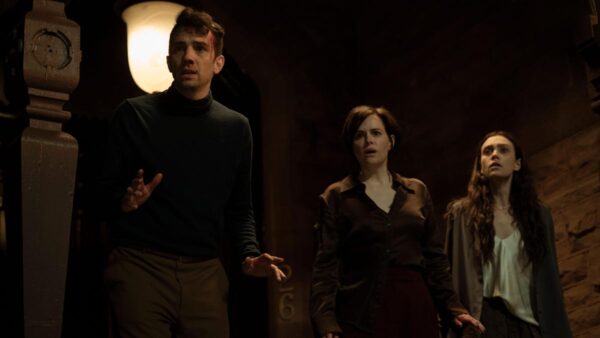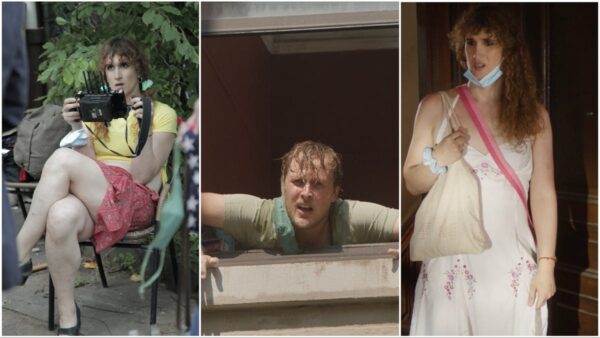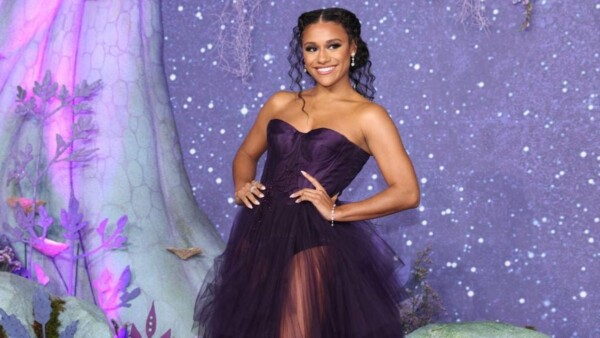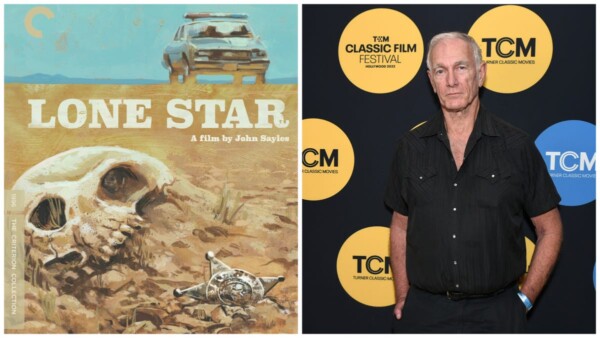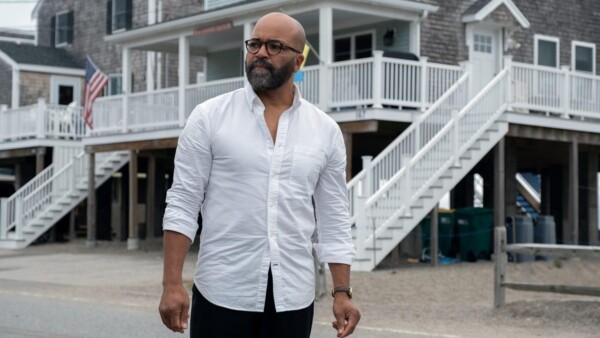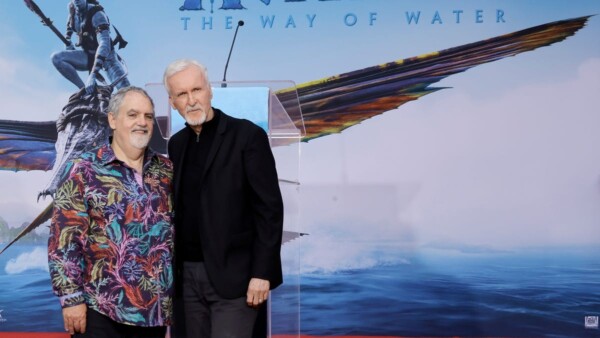With a shock of red hair and a dry, deadpan wit, Siobhan Fallon Hogan has been lighting up screens since the late ’80s. She’s made notable guest appearances on everything from Seinfeld to The Golden Girls to What We Do In The Shadows, even spending a season on Saturday Night Live during the Chris Rock/Adam Sandler/Chris Farley era. She played a slack-jawed bus-driver in Forrest Gump, a drunk mom in the Fred universe, danced with Henry Winkler in Holes, and has popped up up in three different Lars von Trier movies, including Dancer In The Dark.
Her latest movie, Rushed, finds her perched on both sides of the production line, as she both wrote and stars in the film. In the thriller, Fallon Hogan plays a driven and determined mom who finds herself seeking justice after her college-aged son is involved in a tragic hazing incident. It’s available now in select theaters and on VOD.
The A.V. Club talked to Fallon Hogan about that project, as well as her many other notable turns on television and film.
Rushed (2021)—“Barbara O’Brien”/writer/producer/
The A.V. Club: You wrote, produced and starred in your new movie, Rushed. What made you want to take on a project of your own?
Siobhan Fallon Hogan: I’ve written one-woman shows over the years, and weirdly, maybe every eight years or so I do a one-woman show. But I’m sick of them because when we go out after doing a one-woman show, it’s not like you could sit with other actors and say, “Wasn’t it funny when we did that scene? Wasn’t that great?” It’s just very solo, and it’s ton of pressure.
So I said to myself, if I can do a one-woman show, I could do a movie. I love movies more than anything in the world. So I talked to a writer friend and he said, “Just put everything down, don’t judge it, just write it.”
I’m a mom. I have three kids: 26, 23, and now 19. But when I wrote it, they were a little bit younger. You lay in bed at night and worry from the time they’re 15 or 16, depending on how bad of a mother you are and how late they stay out or how bad they are. Your imagination runs wild with what could go wrong. So I had kids in college, and you lose control when they go to college. There’s a sick thing where you have cell phones now, which my parents did not have. So you’re like, “Oh, well, if they haven’t gotten back to me by midnight, of course, it’s normal.” It’s also so weird that you would be helicoptering.
So it’s about a mom who is from upstate New York like I am. Her oldest son goes off to college, and she has four kids in the family. It’s a real Irish family. So there’s a lot of humor. But when something horrible happens in college, in the fraternity, what does the mom do? She tries to take the right path, but when the shit hits the fan, she sides with her kid and goes takes the law into our own hands. That’s when it becomes a thriller. So basically, I just wrote it and let my imagination run wild with what I would do if something horrible happened to my kid.
AVC: Once you send your kids out the door, you really only know what they’re telling you. I suppose you could look at their social media.
SFH: I learned to stop looking at that a long time ago, I actually walked my dog around the block of the day and this woman said, “Look at my daughter and what she’s wearing!” and I said, “Hey, let that go. That’s the least of your worries. She’ll start to cover up in a little while.” It’s not good to have that much contact because you know too much.
AVC: I wish that I had worn less clothing when I was in high school because that’s when I was at my thinnest. Instead I thought I was huge, and wore enormous men’s clothes.
SFH: It’s so true. Oh my gosh. We were so modest.
You know, I’ve done three movies with Lars von Trier. So I took my kids to Europe when one of them was practically a newborn, one was 3, and one was 5. I’ve done three movies with him.
I’ll never forget when they first went. They’re all nude. All the time in the dressing rooms, everything. They’re so comfortable with their bodies, instead of thinking it’s a dirty thing. By the time we left, [my kids] thought it was so normal. When they first got there, they would laugh their heads off.
Dancer In The Dark (2000)—“Brenda”
Dogville (2003)—“Martha”
The House That Jack Built (2018)—“Lady 2″
AVC: How did you get involved working with Lars von Trier? Three movies means you’re doing something right.
SFH: Well, I was pegged as comedic because I had done SNL and I had done a lot of comedy. Even when I did Shakespeare In The Park, I was still Phoebe in As You Like It.
So Avy Kaufman is a fabulous casting director. She actually cast Rushed. I cast a ton of my friends, but she cast the rest. Anyway, she brought me in to audition for the prison guard in Dancer In The Dark that Lars eventually won the Palme d’Or for, with Bjork. I was like, “Holy smokes, this is a serious role and I have to cry. Will I be able to cry?” My daughter, at the time, was 4 years old, and she had an ear infection so I was up all night long before the audition. I went in the next day and I was sobbing because I was so exhausted.
Lars, the way he runs things and the way Zentropa, his company, does films… it’s more like a play. So the crew and the cast are one. There’s no above the line or below the line like Hollywood. Everyone gets mutual respect and everyone has a common goal. So that’s how I ran Rushed, because that’s what I’ve learned from the Europeans and that’s what I like. It’s not about the money. It’s not about who’s above you, who’s on the main titles. All that crap, I can’t stand that. When I did my film I unknowingly but really knowing modeled it after the way Zentropa and Lars run his films.
The Unnaturals (1989)—Cast member
AVC: You were also on The Unnaturals, which had a great cast: Tim Blake Nelson, Paul Feig. Where did that show come from, and what do you think the world should know about that show?
SFH: That, to me, was literally the greatest comedy show I’ve ever been on. I loved it. So Iain Paterson—who I haven’t seen in years but he went on to produce Stranger Things—he was British and he loved all the British humor. I was doing one-woman shows and I pretended I was my own publicist and went around to all these newspapers and asked them to review the shows. I said, “I’m Siobhan Fallon’s publicist.” No one knew who I was. Ian ended up coming and was like, “Hey, that’s the girl who said she was a publicist!” They were doing The Unnaturals and it was on a channel called Ha TV, which then became Comedy Central.
Paul Feig. I mean, you can’t make it up. Years and years later, he’s doing The Office and Bridesmaids. He was in it and Tim was in it. It really was brilliant. Denis Leary was in it. I don’t know why it didn’t go for longer, but the writing was insanely great on it.
AVC: Now, there are something like six hundred different new shows every year with streaming and whatnot. But back then, the barrier to entry for making shows was incredibly high.
SFH: It was the beginning of cable TV.
When I was a kid, you had to be not just a good writer, but a great writer. There was only CBS, NBC, and ABC. There wasn’t even Fox. So The Honeymooners and shows like that were beyond fabulous. Then they opened up cable and it was like, “What is Ha TV?” I think we made about two hundred dollars a week, but we didn’t care. It was the beginning. Now, there are so many shows.
I was really lucky. I always tell young actors that so many times when I was just starting, people would say, “Oh, you’re going to come into your own. You have a deep voice” or “You’ll probably work a lot in your 30s.” I was like, “Screw that. I want to work now.” The way to do it is to write your own stuff. I wrote this one-woman show and I wrote characters that I would want to play if someone would cast me. And that’s what happened. And then SNL saw one of my shows, and Seinfeld. That’s how I got in all those shows—by writing my own stuff. And now this movie, Rushed, it’s just a testament to that. If you take the ball in your own court or your own hands, then you can write your own ticket. You don’t sit around waiting for other people.
AVC: We did an oral history about the show Remote Control on MTV, and Denis Leary and Colin Quinn said they would get paid something like $150 an episode, which seems like nothing, but they said, “That was so much money to us at the time.”
SFH: I never cared about money. I remember CBS wanted to do a holding deal with me. And I think it was $15,000 to hold me for the year. My father was hilarious and he was like, “What the hell is wrong with you? You don’t tie yourself down.” I was like, “Dad, $15,000 for a year!” and he’s like, “You idiot.” So I ended up not doing it.
That’s what they used to do in those days. They would have a network deal where they didn’t want you to go work somewhere else, but you could have sat there and not even worked for the whole year.
Even when I worked on SNL, we were not making a ton of money. This was compared to what people make now. That’s why, when I’m a guest spot on TV shows and and young cast members are complaining about their brand new cars, I’m like, “Oh my God, you have no idea. You’re so lucky to even be working in this business.”
Saturday Night Live (1991-1992)—Cast member
AVC: You weren’t on SNL for a long time, but you made your mark. What do you think SNL meant for you and what did you learn?
SFH: SNL was huge for me because it opened so many doors. I would walk into casting offices years later and people would go, “Siobhan, are you free from SNL?” Because there were no VCRs, unless they stayed up late, they didn’t know if you were even on it.
I met so many great people. Chris Rock, Adam Sandler… Chris Farley was a great friend of mine. These people are incredible. Adam, just the other day, I texted him, and I said, “Listen, you’ve got to make sure you post for my movie when it comes out,” and he said “Absolutely, buddy.” I mean, those were, again, great people that worked their rear ends off.
I had done an episode of Seinfeld by then, and Jerry came on as a host. I mean, it was like the glory days. You just worked really hard and there really wasn’t any ego involved because there were so many cast members. If you thought you were somebody for getting on the show, you got your hat handed to you a couple of times, too.
AVC: It seems like on SNL, you’re only as good as your last episode. If you were in sketches last episode, great. If not, better work hard this week.
SFH: You know, it’s the most nerve-wracking thing. First of all, it’s mainly stand-ups, and I’m an actress. People have always thought over the years I did stand-up, but I never did stand-up. It’s a different animal. You have to be really tough. I like pretending I’m someone else and hiding behind a character. I don’t like being myself and cracking jokes and seeing if someone’s going to laugh. So stand-ups are tough and cutthroat. So it is so competitive.
You’re right, though. The week would happen and you’d maybe be a hero. The next week you’d be down. Chris Rock used to call me Judgy-Wudgy because I was the judge so many times. Like, “Judge, may it please the court…”
Holes (2003)—“Stanley’s Mother”
Charlotte’s Web (2006)—“Edith Zuckerman”
Forrest Gump (1994)—“School Bus Driver”
New In Town (2009)—“Blanche Gunderson”
AVC: What do you think people recognize you for the most?
SFH: You know, it’s funny. If it’s kids—because I’ve oddly been in so many kids movies like Holes and Charlotte’s Web… which people love—then it’s one of those. If it’s people that like European films, they know Dancer In The Dark. But I would say probably Men In Black, which is hilarious because it’s not like I look like a beauty queen in that. And then Forrest Gump. But then a lot of people will say New In Town, which I was in with Renée Zellweger.
It’s different. Some people say, “Did I go to school with you? I feel like I know you from somewhere, but where is it?” I’m always hesitant to answer when people say, “How do I know you? What were you in?,” which is so hideous. It’s like if you have to tell them, there must be a problem. But one time someone said to me, “How do I know you?,” and I was only in my early thirties. I said, “Oh, well, I’m an actress.” And she said, “No, no, no. What did you do for the Fourth of July?” I said, “I was at my uncle Mickey’s picnic,” and she said, “So was I.” So it’s like, you know what? Maybe I’ll just hold back.
Men In Black (1997)—“Beatrice”
SFH: My daughter, Bernadette—who’s now 26 and a reporter for The New York Post—she was 18 months old at the time. I went out to L.A. to do the film and they shot on the Little House On The Prairie set, and it rained like cats and dogs and they couldn’t get this truck up the hill because in L.A., the tires don’t hold on the dirt, you come to find out. So Tommy Lee Jones and I would get in his van and try and go up the hill and every time they couldn’t get it up the hill. So I was there for like three weeks instead of one, and I’d left my baby. I was like, “I’m the worst mother. I can’t get home.”
Anyway, Barry Sonnenfeld is hysterical and a great director. Vincent D’Onofrio, I’ll never forget this. When it was finally my last night of shooting and his eyes were held open with practically sticks, and makeup-wise, his eyes were dried out. I said, “Barry, is there any way I can get the red eye tonight?” And he said, “Vincent, Siobhan has a baby and she only expected to be here for a week but she was here for three. Would you let her shoot her side?” Because if someone has the bigger part, they’re supposed to shoot their close-ups first. But Vincent was so nice and he said, “absolutely.” I remember I ran to that red eye. But then it came out and it was a massive hit.
There was a period like around Forrest Gump when I was like, “I guess I’m only in hits.” One time I went in for this audition for a movie with Russell Crowe. Was it was about smoking? I don’t know. Anyway, I got the part, but I couldn’t take it. Well, they wouldn’t take me because I was going to be eight months pregnant during the shoot. So I said to the guy, “Listen, I think I might be a good luck charm. I’ve been in Forrest Gump. I’ve been in Men In Black, Seinfeld… I mean, I’m not the star of them, but I’m just saying you might want to cast me.” And he tried to get me on it, but I was it was literally like I was going to give birth on the set so I couldn’t do it.
Jury Duty (1995)—“Heather”
Striptease (1996)—“Rita Grant”
AVC: You worked a lot in the mid ’90s. And they’re not always movies that we remember now, but some people were psyched to see, say, Jury Duty when it came out.
SFH: Stanley Tucci was in that with me. I remember we had to do a scene and we were running around. I was like, “Stanley, why are you doing this movie?” He’s like, “I’m trying to pay for my independent!” Because in those days, with the budgets, you really did make great money.
I did Striptease, and that’s where I met Robert Patrick and Demi Moore. They would bring sushi around at 11 o’clock in the morning. There was just no budget, you know.
Seinfeld (1991-1994)—“Tina”
AVC: On Seinfeld, you appeared three different times, including in the first season. How was it coming back to that show as it grew in popularity?
SFH: When I first went on, it was the last episode of the first season. They didn’t know if they were going to be picked up. They were nervous wrecks. They worked so hard and they were such perfectionists and funny, but serious about their work. They didn’t let up. They really worked hard. Then, by the last episode I did, they were on top of the world.
I was supposed to do a fourth one, but SNL wouldn’t let me out to do the fourth one. But who cares? Beggars can’t be choosers. I’m not complaining. I’m just saying.
I remember Julia [Louis-Dreyfus] and Jerry, they were so supportive. Jerry was hysterical because when he would look at me, he wouldn’t look at me. He’d look beyond my head to the left. I said, “Jerry, are you looking at me?” He said, “I can’t look at you. I’m going to laugh.”
Larry David called me up in the middle of the first week, and I thought he was going to fire me. He said, “Siobhan, I’m sorry to tell you, we have to make this fit into 22 minutes, so we have to cut your part down.” I said, “Larry, I don’t care if you cut my time. I’m happy to be here.” But when you watch that episode, I’m Elaine’s roommate and I go, “Hi Elaine.” I take a sip of this water because I asked for that from props and I take the longest sip you’ve ever seen because I’m like, “Look, as God is my witness, I’m going to get screen time. If you cut my lines, it’s fine. But I’ll just talk really slow like ‘Hi Elaiiiiiiine’ and sip really long.” It’s really pathetic. It’s called eating the scenery.
AVC: It seems like a lot of times character actors just have to figure out how to stay on screen.
SFH: Henry Winkler called me during Holes and he was like, “Siobhan, it’s Henry.” He played my husband. He’s like, “We’ve got to get more screen time. What do you say you and I dance after I say I don’t smell anything?” I was like, “I’m all in.” But it literally made no sense. He’s like, “I don’t smell anything.” I’m like, “I don’t smell anything.” And then we start some stink dance that we did. And it made it in! It was great because, I mean, Henry Winkler was The Fonz and he had done everything, but you never change as an actor.
I remember Lauren Bacall in Dogville, and we were walking up the ramp to the set. I was holding her arm, because she was 82. She said, “What do you have lined up after this?” I said, “Nothing.” She said, “Neither do I. Do you think we’ll ever work again?”
It’s such a pathetic existence being an actor because you’re like, “I’m going to definitely need some time off after this.” I remember I was really talking about how I’d like to take at least three months off to be with my kids. Then at that three-month mark you’re like, “Oh, my God, I’m screwed. I’m never working again.” It’s just a pathetic way to live. That’s why it’s good to write. You get more control.
AVC: In our recent interview with Tony Hale and Kristen Schaal, they were talking about how it’s hard to explain to non-actors that you never know what you’re doing. So when your family asks, “Do you want to go here next summer?”, you have to say, “I do want to go, but I can’t tell you if I can or can’t.”
SFH: And inevitably when you decide to go, you will get a call. It’s like clockwork. I could plan a vacation and then I get a call saying, “We want to offer you a movie” or two episodes of a show. It’s just the way it goes.
Same with when you go into an audition. If you’re desperate, they can read that coming off you like there’s no tomorrow. If you’re already doing a film and you go for an audition, they’re like, “Hey, this girl’s got it.” I’m telling you, it’s like dating.
The Golden Girls (1990)—“Abby”
AVC: You did a Golden Girls episode called “Zborn Again.” How did you end up doing that, and what was it like to work with those iconic women?
SFH: That was my very first TV show ever. I had only done stage. My friend David Goodwin, who’s now the president of the Writers Guild, lived behind me and we became great friends. He wrote on The Golden Girls, so he had me come in for an audition.
Now, when you’re on a TV show like that, the director cannot direct the cast because they’re so famous and so beyond it that you are the entire focus. You’re the guest star. You get so many notes. The last thing you want to do to someone funny, I always think, is give them note after note after note. So by the time the night came to shoot, this guy was giving me so many notes. I was like, “dear God.” Anyway, I just said, “The hell with it. I’m just going to do what I naturally know.”
Betty White was so amazing. I played her secretary. I loved her. I felt like I knew her my whole life. She was funny, hilarious, and kind. But I was such a loser. I didn’t realize that I was one of hundreds of guest stars at this point. I thought I was part of the team. They were on TV Guide, the magazine, which was a big deal in those days, the three of them. So I cut out a little hole and put my face in and made them each card and gave it as a gift. I was like, “I just want to say thank you so much for having me. I loved it,” as if I was part of it. [Betty], of course, loved it.
I remember when it was the last night, and this hot shot producer was walking with his arms out to hug and I thought he was coming to me so I put my arms out, but he passed me to go hug Bea Arthur. I thought I was part of the team.
Fred: The Movie (2010)—“Fred’s Mom”
Fred 2: Night Of The Living Fred (2011)—“Fred’s Mom”
Fred: The Show (2012)—“Fred’s Mom”
Fred 3: Camp Fred (2012)—“Fred’s Mom”
AVC: Speaking of cultural phenomenons, Fred was something that just swept over certain parts of the population while others—namely some adults—were just baffled by it.
SFH: Interestingly enough, David Goodman, once again from The Golden Girls, he wrote that. He said, “I want you to be in this. I want you to play the mom.”
Fred was like this cult hit. To this day, kids know that show. My son made me do these Cameo things. I can’t tell you how many requests I get to do Fred. I feel like people just love the mean drunk mother.
Law & Order: Special Victims Unit (2000-2003)— “Linda Leggat/Melissa Raye”
The Paper (1994)—“Lisa”
AVC: It seems like it’s a rite of passage for an actor who lives in the New York area to do at least one of the Law & Orders. You’ve been on SVU twice, in two different roles.
SFH: [The second time] I went in to read for the producer, Dick Wolf, I said, “Look, I’m riddled with Catholic guilt. I’m going to be totally honest with you. I’ve already done this.” And he was like, “Oh, we don’t care.” I said, “I played a different character, though,” and he was like, “Oh, it doesn’t matter. It’s two years later.” Dick Wolf was just like, “look, Siobhan, we don’t care. We’ll put you in a little different outfit.
AVC: In our Random Roles with Mike O’Malley, he said that Law & Order was his very first on-screen job .
SFH: Honestly, a really good book would be to say what we really thinking on your first job because nobody knows what they’re doing. I remember my very first movie was The Paper with Glenn Close and Michael Keaton. I was in an elevator with Glenn in my costume and I said, “Glenn, I’m Siobhan. I’m going to be playing your secretary.” She said, “Do you want to run lines?,” and I said, “Sure.” Now, remember, I come from stage. I just did Shakespeare In The Park.
I remember one of her lines had the name Bobby DeNiro in it, and she was like, [talks quietly] “So, anyway, have you talked to Bobby DeNiro?” I could hardly hear her. I was like, “What?” It was like, “Holy crap. Is this how you do film?” I have no idea. It was so hideous because no one prepares you for that first day. Most actors are trained, at least in my time, for stage. You have no idea how much you have to bring it down and be small and know where to stand.
Greedy (1994)—“Tina”
SFH: When I did Greedy, it was my second movie. It was Kirk Douglas and Michael J. Fox and Phil Hartman and me. I’m online for craft service , and there was a guy next to me. I said, “Hi, I’m Siobhan.” “I’m Brian Grazer.” I go, “Oh, what do you do on the movie?” He said, “Oh, I’m a producer.” I said, “That’s really good! You must have worked hard for that.”
What We Do in the Shadows (2019)—“Animal Control Officer”
SFH: I love What We Do In The Shadows. The fact that I was playing a bat exterminator was so fabulous to me and I opted not to wear makeup. And then I saw it, and I was like, “Maybe I opted wrong.” But I met Justin Linville, who played the other bat exterminator, and I said to him, “You’re fabulous. I want to keep your number,” and now he plays my son’s roommate in Rushed, so how crazy is that?
I have always believed, number one, treat people the way you want to be treated. And number two, I tell my kids, never count anyone out. The thing about being an actor is, like you said, you could be hot and for a period like I was in the ’90s, and then you have a couple of slumpy years, which is natural. Right? Maybe you have a couple of kids, and then you start working again. I’ve had so many people say to me, “Are you still acting?” And you’re like “What the F? I was just in…” but you don’t explain yourself. You treat people the way you want to be treated and they won’t forget it and you won’t forget them. And then when it’s time for them to hire, you’ll get a call.
You know, they always say live your life backwards and you’ll have a great life. That’s kind of the way I operate, and it really kind of worked out. But I was also very picky. I said no to a lot of stuff. If I thought something was garbage, my bank account had no business saying no, but I was like, “This is crap and I don’t want to be in this.” I would say no. One time I got dumped by a really big agency because I was like, “I don’t like this. It’s crass and gross.” They called me up. They’re like, “Why don’t you like it?” I was like, “I don’t like the way it treats the elderly.” You know, there have been a couple of times that I’ve quit things, but I always take money out of the equation. But believe me, money’s taken me out of the equation a lot of times, too. I judge it on what what what I’d be proud to be in.
AVC: Is there anything you regret turning down, or that you auditioned for that you wished you’d gotten?
SFH: Well, you know, weirdly, I was supposed to be in The Perfect Storm with George Clooney, but Lars cast me in Dancer In The Dark. The Perfect Storm was big money and it was going to be a big, huge blockbuster, but I was taught that you stick with your word and you’re loyal and you don’t go back on your word once you commit. So I didn’t do it.
I remember at the time thinking it would have been such big exposure, but look at that. I flew out of Denmark after I did Dancer In The Dark and I said, “I will be back here.” I sometimes have this weird… they call it Irish Fae, like I remember I took the boat in from New Jersey for my audition for Charlotte’s Web, and I remember I called the baby sitter from Rockaway, Queens, and I said, “I’m going to be going to Australia to do this movie. Are you available?” I didn’t have the part. I’d just had an audition, but I just knew.
The transcript of this conversation has been edited for length and clarity.
Le texte ci-dessus est une traduction automatique. Source: https://www.avclub.com/siobhan-fallon-hogan-on-wooing-the-golden-girls-and-cra-1847580135?rand=21407



